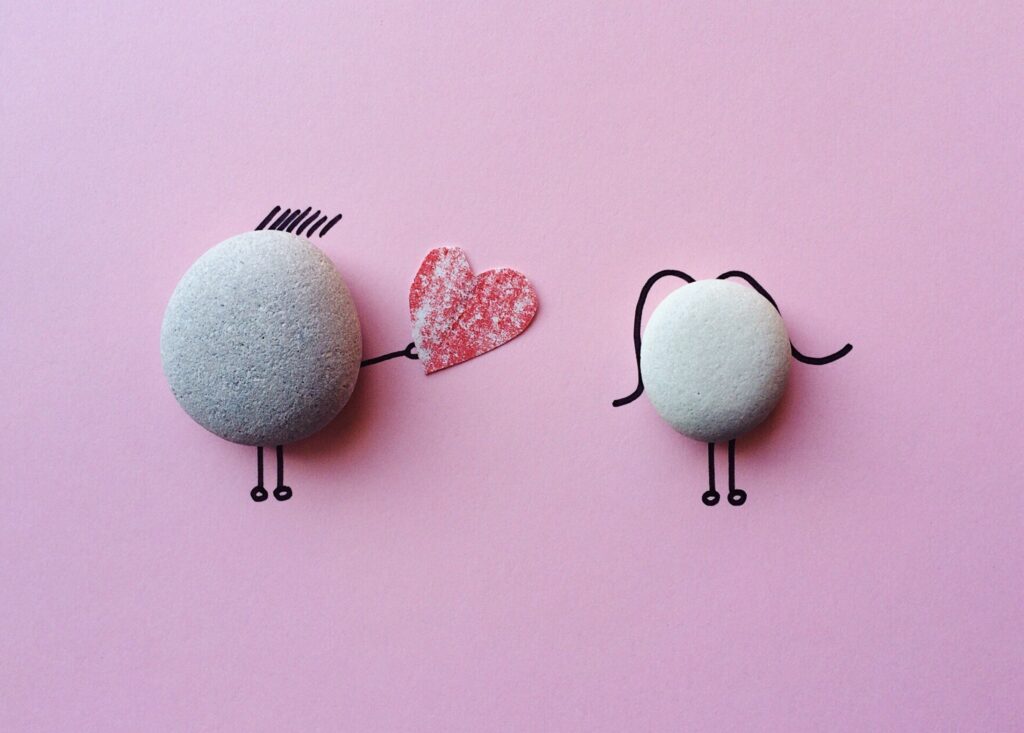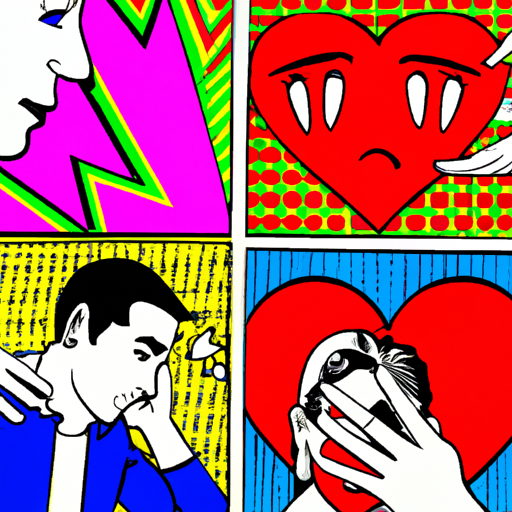“Don’t Ignore the Warning Signs: Take Control of Your Emotional Health.”
An emotionally unhealthy relationship can be difficult to identify, as it can often be disguised as a seemingly normal relationship. Emotional health is just as important as physical health, and it is important to recognize the signs of an emotionally unhealthy relationship in order to protect yourself and your partner. Emotionally unhealthy relationships can be characterized by a lack of communication, a lack of trust, and a lack of respect. These relationships can be damaging to both parties involved, and it is important to recognize the signs in order to take steps to improve the relationship or end it if necessary.
The Benefits of Seeking Professional Help for an Unhealthy Relationship
If you are in an unhealthy relationship, seeking professional help can be a great way to get the support and guidance you need. Professional help can provide you with the tools and resources to help you make positive changes in your relationship. Here are some of the benefits of seeking professional help for an unhealthy relationship:
1. Improved communication: Professional help can help you learn how to communicate more effectively with your partner. This can help you better understand each other’s needs and feelings, and can help you resolve conflicts in a healthier way.
2. Increased understanding: Professional help can help you gain a better understanding of yourself and your partner. This can help you identify the underlying issues in your relationship and can help you develop healthier ways of dealing with them.
3. Improved self-esteem: Professional help can help you build your self-esteem and confidence. This can help you feel more secure in your relationship and can help you make better decisions.
4. Improved problem-solving skills: Professional help can help you develop better problem-solving skills. This can help you identify and address issues in your relationship more effectively.
5. Increased support: Professional help can provide you with the support and guidance you need to make positive changes in your relationship. This can help you feel more empowered and can help you make healthier choices.
Seeking professional help for an unhealthy relationship can be a great way to get the support and guidance you need to make positive changes. It can help you improve your communication, understanding, self-esteem, problem-solving skills, and support. If you are in an unhealthy relationship, don’t hesitate to reach out for help.
How to Cope with the Emotional Stress of an Unhealthy Relationship

If you are in an unhealthy relationship, it can be difficult to cope with the emotional stress it can cause. It is important to remember that you are not alone and that there are ways to manage the stress. Here are some tips to help you cope with the emotional stress of an unhealthy relationship:
1. Reach out for support. Talk to a trusted friend or family member about your situation. It can be helpful to have someone to talk to who can provide an objective perspective and offer emotional support.
2. Take care of yourself. Make sure you are taking time for yourself to do things that make you feel good. This could include activities such as reading, listening to music, or going for a walk.
3. Practice self-compassion. Remind yourself that you are doing the best you can in a difficult situation. It is important to be kind to yourself and recognize that you are not to blame for the unhealthy relationship.
4. Seek professional help. If you are feeling overwhelmed, consider talking to a therapist or counselor. They can provide guidance and support to help you cope with the emotional stress of an unhealthy relationship.
Remember, you are not alone. There are resources available to help you cope with the emotional stress of an unhealthy relationship.
Understanding the Dynamics of an Unhealthy Relationship
An unhealthy relationship can be difficult to understand and navigate. It can be hard to recognize when a relationship is unhealthy, but there are some common signs to look out for. These include feeling like you are constantly walking on eggshells, feeling like you are not being heard or respected, and feeling like you are constantly being criticized or put down.
If you are in an unhealthy relationship, it is important to remember that you are not alone. It can be difficult to take the first step to make a change, but it is possible.
The first step is to recognize the dynamics of the relationship. It is important to understand how the relationship works and how it affects you. Pay attention to how you feel when you are around your partner and how they make you feel.
The next step is to set boundaries. It is important to be clear about what is acceptable and what is not. This can help you to create a healthier relationship dynamic.
It is also important to take care of yourself. Make sure that you are taking time for yourself and doing things that make you feel good. This can help to reduce stress and give you the strength to make changes in the relationship.
Finally, it is important to reach out for help. Talk to a trusted friend or family member, or seek professional help if needed. It can be difficult to make changes in an unhealthy relationship, but it is possible. With the right support, you can create a healthier relationship dynamic.
The Impact of Emotional Abuse in Unhealthy Relationships

Emotional abuse in unhealthy relationships can have a devastating impact on an individual’s mental and emotional wellbeing. It can leave a person feeling isolated, worthless, and powerless.
Emotional abuse can take many forms, such as criticism, insults, manipulation, and control. It can also involve withholding affection, or making threats. All of these behaviors can have a damaging effect on a person’s self-esteem and sense of self-worth.
The effects of emotional abuse can be long-lasting and can lead to depression, anxiety, and other mental health issues. It can also lead to physical health problems, such as headaches, stomachaches, and insomnia.
It is important to recognize the signs of emotional abuse and to take steps to protect yourself. If you are in an unhealthy relationship, it is important to reach out for help. There are many resources available to help you find the support you need.
It is also important to remember that you are not alone. There are many people who have experienced emotional abuse and have found ways to heal and move forward. You can find strength and courage in knowing that you are not alone.
No one deserves to be in an unhealthy relationship. If you are in an emotionally abusive relationship, it is important to remember that you have the power to make a change. You deserve to be in a healthy, loving relationship.
How to Recognize the Red Flags of an Unhealthy Relationship

Recognizing the red flags of an unhealthy relationship is an important step in protecting yourself from emotional and physical harm. Here are some signs to look out for:
1. Your partner is overly controlling. They may try to dictate who you can and cannot see, what you can and cannot wear, or how you should spend your time.
2. Your partner is overly jealous. They may accuse you of cheating or become angry if you talk to someone of the opposite sex.
3. Your partner is verbally or physically abusive. This can include name-calling, insults, threats, or physical violence.
4. Your partner is emotionally manipulative. They may try to guilt you into doing things or make you feel bad about yourself.
5. Your partner is not supportive. They may not be there for you when you need them or may not be interested in your goals and dreams.
If you recognize any of these signs in your relationship, it is important to take action. Talk to a trusted friend or family member, or reach out to a professional for help. Remember, you deserve to be in a healthy, safe, and supportive relationship.
Identifying the Warning Signs of an Emotionally Unhealthy Relationship
1. Lack of Respect: Respect is essential in any healthy relationship. If your partner is not respecting your boundaries, opinions, or values, this is a warning sign of an emotionally unhealthy relationship.
2. Controlling Behavior: If your partner is trying to control your decisions, behavior, or who you spend time with, this is a sign of an unhealthy relationship.
3. Unhealthy Communication: If your partner is constantly criticizing you, belittling you, or using hurtful language, this is a sign of an emotionally unhealthy relationship.
4. Unhealthy Jealousy: If your partner is overly jealous or possessive, this is a sign of an emotionally unhealthy relationship.
5. Lack of Trust: If your partner is not trusting of you or is constantly questioning your loyalty, this is a sign of an emotionally unhealthy relationship.
It is important to remember that relationships take work and communication is key. If you are in an emotionally unhealthy relationship, it is important to reach out for help and support. There are resources available to help you and your partner work through any issues you may be facing.
Q&A
1. What are some signs of an emotionally unhealthy relationship?
-Lack of trust and communication
-Controlling behavior
-Manipulation
-Jealousy and possessiveness
-Criticism and name-calling
-Physical or emotional abuse
-Unrealistic expectations
-Gaslighting
-Isolation from friends and family
2. How can I tell if my relationship is emotionally unhealthy?
If you feel like your partner is controlling, manipulative, or abusive, or if you feel like you can’t be yourself in the relationship, it’s likely that your relationship is emotionally unhealthy. Other signs include feeling like you’re constantly walking on eggshells, feeling like you’re not being heard or respected, or feeling like you’re constantly being criticized.
3. What should I do if I think my relationship is emotionally unhealthy?
If you think your relationship is emotionally unhealthy, it’s important to talk to someone you trust about it. This could be a friend, family member, or a professional. It’s also important to take care of yourself and make sure you’re getting the support you need.
4. What are some ways to improve an emotionally unhealthy relationship?
Improving an emotionally unhealthy relationship can be difficult, but it’s possible. Some ways to do this include: communicating openly and honestly, setting boundaries, and seeking professional help if needed. It’s also important to focus on self-care and make sure you’re taking care of yourself.
5. What are the long-term effects of an emotionally unhealthy relationship?
The long-term effects of an emotionally unhealthy relationship can be serious and can include depression, anxiety, low self-esteem, and difficulty trusting others. It’s important to recognize the signs of an unhealthy relationship and take steps to address it.
6. How can I tell if my partner is emotionally unhealthy?
If your partner is controlling, manipulative, or abusive, or if you feel like you can’t be yourself in the relationship, it’s likely that your partner is emotionally unhealthy. Other signs include feeling like you’re constantly walking on eggshells, feeling like you’re not being heard or respected, or feeling like you’re constantly being criticized.
Conclusion
The signs of an emotionally unhealthy relationship can be difficult to recognize, but they are important to be aware of. Unhealthy relationships can have a negative impact on both partners, leading to feelings of insecurity, depression, and anxiety. If you recognize any of the signs of an emotionally unhealthy relationship, it is important to take steps to address the issue and create a healthier relationship. Seeking professional help can be beneficial in helping to identify and address the underlying issues.

